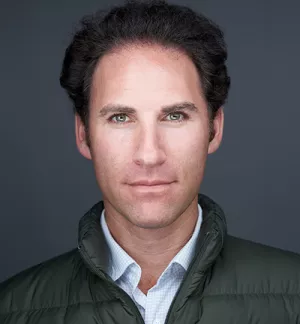
Last week, the Instrument in Support of Trade Exchanges (INSTEX) launched its first transactions with its Iranian counterpart, Special Trade & Finance Institute (STFI). INSTEX is designed to facilitate humanitarian trade, especially in food and medicine, by providing additional confidence to banks and companies seeking to participate in these exchanges. While such exchanges are permissible under existing sanctions, firms are deterred by their customers’ potential exposures to sanctioned entities, as well as the possibility of expanded sanctions into this arena.
In October, Washington sanctioned Parsian Bank, a key player for many humanitarian transactions in the past, and has recently considered extending sanctions onto the STFI, which is owned by the sanctioned Central Bank of Iran (CBI). In confronting this mechanism, Washington risks entrenching the economic role played by the Islamic Revolutionary Guard Corps (IRGC), as well as other elements of the Iranian Armed Forces.
As the situation has escalated, Tehran has demanded that INSTEX be expanded to include oil trade, which is a key aspect of the existing sanctions regime. Unlike humanitarian goods, oil was targeted by both the Obama and Trump administrations due to its role as a source of hard currency for the Iranian government. When oil is sold overseas for dollars, euros, or other currencies, the funds are repatriated to the central bank, which holds them as reserves to pay for imports. In blocking access to the oil markets, sanctions can choke the regime of a vital source of revenue, which could support proliferation activities, financial support for terrorism, or the modernization of the Armed Forces. It is unlikely that INSTEX will be able to achieve this objective, carrying ramifications for broader European financial statecraft.
The key constant at the heart of Washington’s approach has been the international role played by the U.S. Dollar. In its capacity as a reserve currency, dollars are often used as a medium of exchange for trade between two third parties outside the United States. This is not the product of a nefarious political conspiracy, but rather simple economics: if Poland and Iran are in a transaction, Iranian traders are much more likely to prefer to hold dollars than zlotys, while Polish importers are likely to have cheaper access to dollars than rials. The dollar’s use in international trade is intrinsically linked to the development of deep and liquid capital markets in the United States. As a result, even if INSTEX were to be expanded to the oil trade, many large European firms, like Total or Eni, would still be deterred by the prospect of being targeted by American sanctions.
While it will be tough for the Europeans to break this state of nature, it is no excuse for Washington to grow complacent. On a macro level, the euro is unlikely to rival the dollar absent a deepening of structural, economic, and monetary reforms, including the completion of the banking union with a common deposit insurance scheme and the successful cross-border integration of the financial services industry via the capital markets union. Larger issues loom ahead of an international euro as well, such as the need for a pan-Eurozone safe asset that has a large enough supply to rival the Treasury market. Even without the completion of these reforms, some transactions have already been able to switch from dollars to euros at the margin to evade some of the financial restrictions passed by the US Treasury.
Earlier this year, as part of a broader pressure campaign on Venezuela, international scrutiny on the Maduro regime’s central bank transfers were shown. Seeking to shore up the government’s liquidity, Caracas began selling gold, first in the form of unrefined production from small-scale mining, before escalating to the central bank’s gold reserves. Noor Capital, based in Abu Dhabi, purchased 3 tonnes of gold in January, before halting further transfers, despite Venezuelan ambitions to sell as much as 29 tonnes. Reporting at the time signaled that buyers in the UAE were interested in paying for the gold with cash in euros as opposed to dollars. In small-scale transfers such as these, which are of utmost importance to their authoritarian benefactors, the euro can be a useful vehicle currency in manners akin to those of the dollar.
For non-state actors, the euro’s benefits can be even larger due to these groups’ partial independence from the dollar and the formal financial system. In Africa, al-Qaeda in the Islamic Maghreb (AQIM) benefited from kidnapping-for-ransom operations, a practice encouraged by Europeans’ willingness to pay ransoms in euros. In the past, these kidnappings have affected diplomats, aid workers, and tourists. In addition to these euro-denominated ransom payments and narcotics trafficking, the exploitation of Sahel’s geographic position between Latin America and Europe earned AQIM the monicker of being al-Qaeda’s “wealthiest affiliate.” For a non-state actor seeking to raise funds and operating using alternative payment mechanisms like hawala, the financial underpinnings of the dollar are less important than the ability to simply transfer hard currency across borders.
With the recent change of leadership at the European Central Bank last week, the euro likely has a bright future ahead of itself. Christine Lagarde, a former French finance minister and managing director of the International Monetary Fund (IMF), stood out from her rivals, including Francois Villeroy de Galhau, the head of the French National Bank, and Jens Weidmann, the head of the Bundesbank, with a background outside of central banking.
In this regard, she may rely more on her chief economist, Philip Lane, than Mario Draghi did; however, her selection reflects how many of the euro’s economic issues are rooted in the politics of the Eurozone and will need, in some part, political solutions. For instance, there will be no European Deposit Insurance Scheme without some assuaging of German anxieties regarding the potential need for cross-border transfers. In these types of discussions, Madame Lagarde’s leadership of the IMF during the Eurozone Sovereign Debt Crisis makes her arguably the most credible actor on the stage to advocate for reforming the Eurozone. From Washington’s perspective, there is no reason to oppose a strong and stable Eurozone, even if it comes at some cost to the dollar’s role in international transactions.
Much to the Kremlin’s chagrin, economic stability in Western Europe can be a potent antidote to the rise of toxic populist politics on the continent if it supports political cohesion in the European Union and in NATO.
Statements and views expressed in this commentary are solely those of the author and do not imply endorsement by Harvard University, Harvard Kennedy School, or the Belfer Center for Science and International Affairs.
Michael B. Greenwald is a fellow at Harvard Kennedy School's Belfer Center for Science and International Affairs. He is also a senior adviser to Atlantic Council President and Chief Executive Officer Frederick Kempe and an adjunct professor at Boston University. From 2015-2017, Greenwald served as the US Treasury attaché to Qatar and Kuwait.
Greenwald, Michael. “INSTEX: The Future of the Euro.” Belfer Center for Science and International Affairs, Harvard Kennedy School, July 9, 2019



